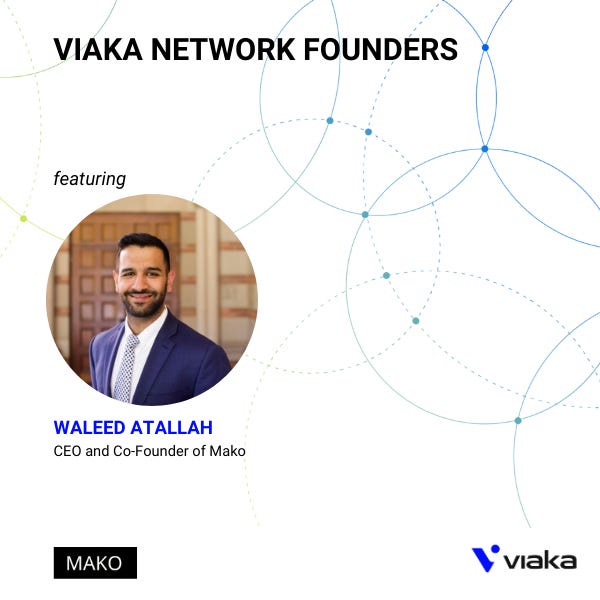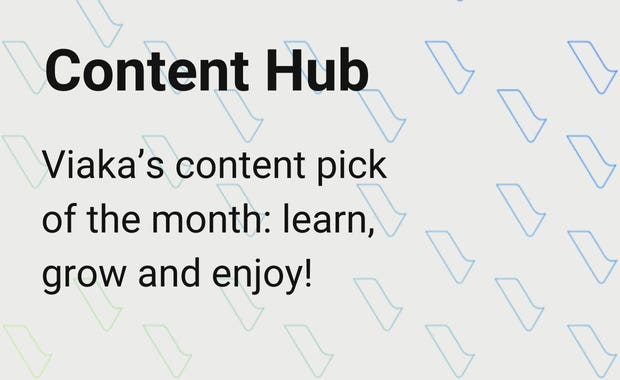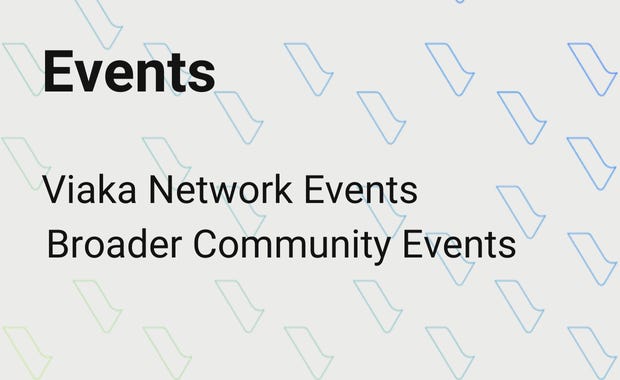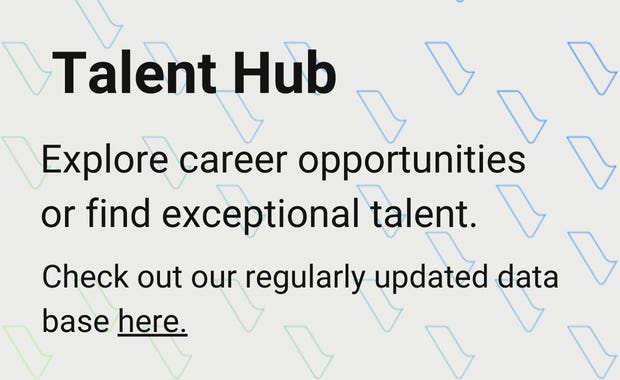Revolutionizing AI Efficiency: Mako’s Journey with Waleed Atallah
From optimizing models to fostering ethical AI practices, Mako’s story showcases the drive and dedication of a team shaping the future of technology.
Our weekly newsletter shines a spotlight on members of our Viaka Network. Plus, you'll find relevant job postings, upcoming events, and interesting media materials. Subscribe below!
Ever wondered what it takes to cut AI compute costs by up to 70% while unlocking new possibilities for businesses and everyday users? In this fascinating interview, the founder of Mako shares how his firsthand struggles with tedious, hardware-specific AI model optimization inspired him to create a game-changing platform. Discover how Mako is streamlining AI efficiency across platforms, the surprising ways AI already impacts your daily life (like spam filters and smarter navigation), and the challenges of building a team with the rare expertise needed for such a technically demanding mission. The founder also reflects on Mako's role in promoting ethical AI development and what’s next for this ambitious journey into the future of accessible, high-performance AI.
As the founder of Mako, what inspired you to tackle the challenge of reducing AI compute costs, and what impact do you hope this will have on businesses and everyday users?
I had been dealing with the problems Mako aims to solve first hand at both of my previous jobs. It was all so manual and tedious optimizing models for specific hardware platforms. Each hardware had its own nuances that you had to learn, and in many cases each new model basically needed an entirely manual effort to get it running efficiently. On top of all that, it was hard finding engineers with the expertise and experience needed to do this well! Our goal is to take all the expertise we have as a team and distill it into a software package that can do all of these optimization efforts for you. It will be incredibly important to support high performance AI on a wide variety of platforms, and Mako allows people to achieve this without having to hire entire teams.
AI is transforming industries, but many people don't realize how it impacts their everyday lives. Can you share a few examples of how AI is already making life easier for the average person?
I think most people won't even realize how AI is making their lives easier. It works seamlessly in the background in applications like Google Maps, where it helps you get to your destination faster. It works in email clients to block out spam, and filter emails according to how important they are. It helps you actually find what you're looking for on search engines and in social media. I think in the future we'll start using voice AI assistants more regularly too. All in all, even if only small things start to become more convenient, it adds up over time to a pretty big impact.
Building an AI platform that cuts costs by up to 70% is no small feat. What were the biggest challenges you faced as a founder in bringing this vision to life?
We're working on a very technically difficult task that requires a lot of expertise in GPU programming, including low-level understanding of hardware architectures and how this maps to popular software algorithms. One of the biggest obstacles is finding the right technical talent that can help bring this to life! Thankfully, we have an incredibly competent team that seems to be doing the work of 10x more people. We also have a strong culture that puts an emphasis on training good software engineers in the art of GPU programming, which has borne fruit for us. We take competent engineers and turn them into GPU experts who can contribute to the ambitious goals we set as a company.
There’s a lot of talk about the potential risks of AI, from job displacement to ethical concerns. How do you think companies like Mako can help ensure AI is used responsibly and for the benefit of everyone?
While smaller companies may have limited influence over the major AI risks that tend to originate from large tech companies, we can still make meaningful contributions to responsible AI development. One concrete step is to understand our customer use cases and ensure their intended use of our technology aligns with our values. We have both the right and responsibility to decline business relationships that could lead to harmful applications of our products anywhere in the world. As companies and individuals, we can exercise our freedom to work with partners who share our commitment to using AI as a force for good - or at minimum, avoid those who might cause harm. Though we may not be able to address all AI risks directly, making ethical choices about who we work with is an important way smaller players can help shape AI's trajectory.
Looking back on your journey with Mako, what has been your proudest moment as a founder, and what’s next for your platform?
Hmm this is a tough one because it really feels like the journey has just begun. I'm proud of taking the risk and quitting my job. I'm proud of being able to work with and assemble a group of such incredibly talented people. It really is too early to be talking about what we're proud of when there is so much more to do! Next for us is launching the self-serve platform and the next version of our software. We're only just getting started, so there is so much more to come!
📲 Follow Mako on LinkedIn and head over to their website for more information 💻
In This Month’s Content Pick: A Look Back at Viaka’s 2024 AI Startup Demo Day!
This month, we're taking a trip down memory lane to revisit the exciting AI Startup Demo Day held last May. Remember that amazing event where four groundbreaking AI startups – Aman Ibrahim's DeepTrust AI, Kazzy Khazaal's Dreamwell AI, Alireza Ziarizi's Parkusher, and Burak Askar's Spiky.AI – showcased their visionary technologies to a panel of esteemed investors?
This was truly a showcase of the incredible innovation happening in the AI space. The event featured insightful presentations from the startups, followed by valuable feedback and perspectives from a distinguished panel of investors, including Tina Daher from Shorooq Partners, Aboud Al-Qattan from Dash VC, Rama Chakaki from Transform VC, and Rami Al Karmi from Abnewnormal AI.
A big thank you to our sponsors, Taft Law and Silicon Valley Bank, for their support in making this event a reality.
Stay tuned for future updates on exciting events and initiatives within the Viaka community!
📅 Events within the Viaka network & beyond:
Mastering Financial Management for Growth [hosted by DIFC Innovation Hub] December 17th (In-Person, Dubai, UAE)
Flat6Labs Pitchathon [hosted by Flat6Labs] December 28th (In-Person, Amman, Jordan)
If you’d like to share an event in this newsletter, we encourage you to join the Viaka Network and share the event with info@viaka.net!
If you’d like to share a job posting in this newsletter, we encourage you to join the Viaka Network and share the event with info@viaka.net!
That’s it for this week. Thank you!
Like what you see? Here are some things you should do:





